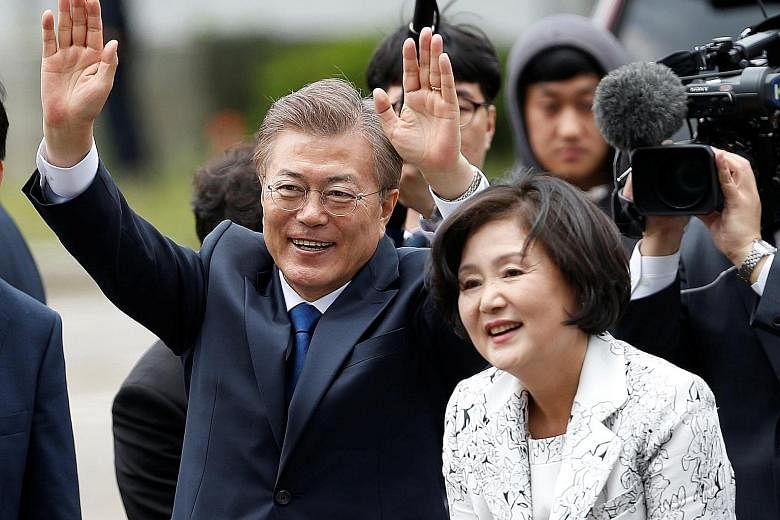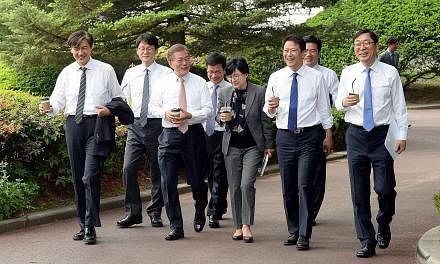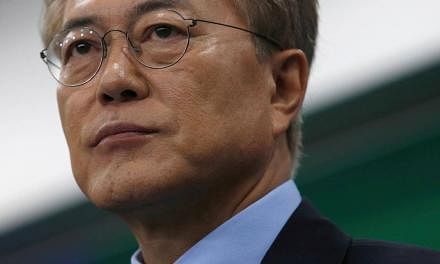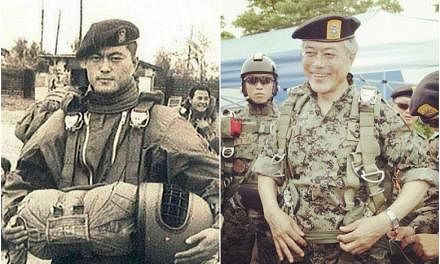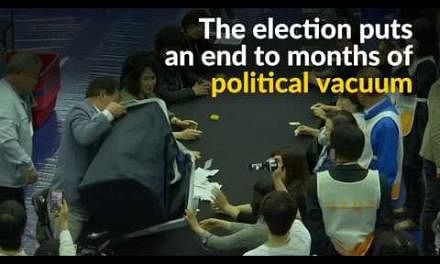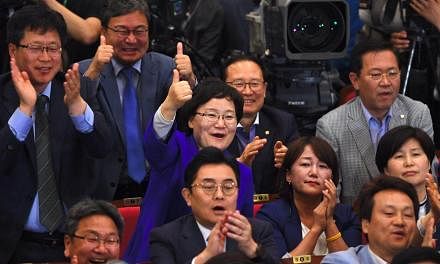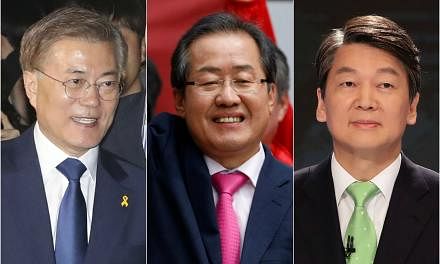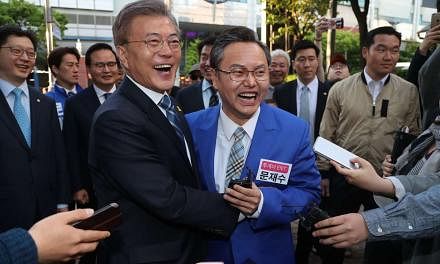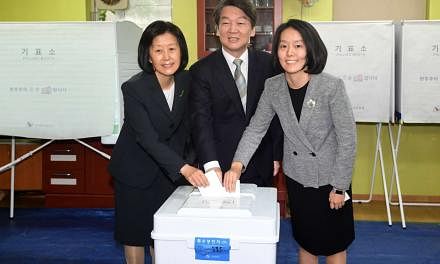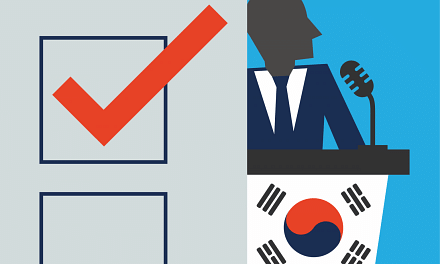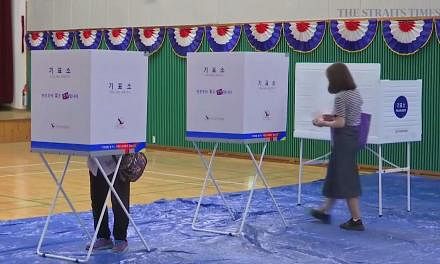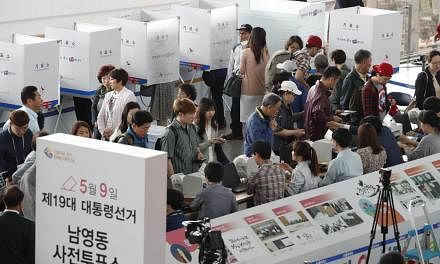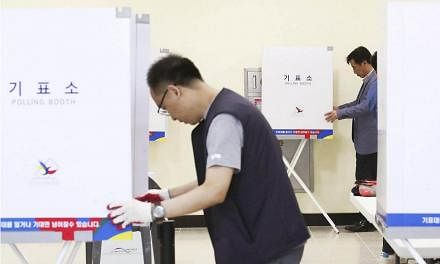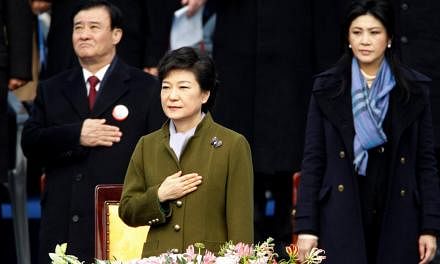South Korea's new President Moon Jae In, who was sworn in yesterday after a landslide victory, has pledged to push for national unity while trying to address the country's security and diplomatic crisis "promptly".
In his first speech as President, the former human rights lawyer vowed to defuse tension on the Korean peninsula caused by Washington and Pyongyang trading barbs on military confrontation, as well as resolve disputes with Beijing over the deployment of a US missile shield.
"If needed, I will immediately fly to Washington," he said. "I will also visit Beijing and Tokyo and even Pyongyang under the right circumstances. I remain committed to doing all I can for the settlement of peace on the Korean peninsula."
He also pledged to strengthen South Korea's alliance with the US.
Mr Moon and US President Donald Trump, in a phone call last night, reaffirmed the importance of the alliance and working together to resolve the North Korean threat, according to South Korea's presidential office.
There was no mention of Mr Moon's victory in North Korea's state media yesterday. The 64-year-old won 41.1 per cent of over 33.8 million votes cast on Tuesday, beating his closest rivals Hong Joon Pyo from the conservative Liberty Korea Party (24 per cent) and Ahn Cheol Soo from the centre-left People's Party (21.4 per cent).
Mr Moon replaces the disgraced Park Geun Hye, who was impeached and arrested over a corruption and influence-peddling scandal that triggered massive protests. She is awaiting trial on charges including colluding with her civilian friend Choi Soon Sil to extort money from conglomerates such as Samsung, under the guise of donations.
In his speech, Mr Moon vowed to "boldly break from the malpractices of old days", in a reference to the failures of the previous administration. He also pledged to create jobs and reform the powerful conglomerates that dominate the economy.
"Under the Moon Jae In administration, the term describing a cosy relationship between political and business circles will completely disappear," he said.
In a sign of his resolve to improve long-strained ties with Pyongyang, Mr Moon has appointed veterans with experience working on North Korean issues for three key positions in his new administration.
His choice for prime minister is South Jeolla province governor and former journalist Lee Nak Yon, who worked on the Sunshine Policy of engaging the North under two former liberal administrations in the 2000s. Mr Moon then named former spy agency official Suh Hoon, who played a key role in arranging two landmark summits with the North and met its late leader Kim Jong Il, as the head of the National Intelligence Service.
For Chief of Staff, Mr Moon appointed former lawmaker Im Jong Seok, who had visited North Korea as a student activist to meet former leader Kim Il Sung. As a lawmaker, he had helped to revise a law on support for South Korean firms at the joint Kaesong industrial complex, which was closed by the Park administration early last year.
Analysts said Mr Moon's North Korea policy is a pragmatic one taking in recent developments on the Korean peninsula, and not a downright return to the Sunshine Policy.
"If you carefully read his address, he only promised to meet Kim Jong Un under the right conditions. So his position is not that fundamentally different from that of US President Donald Trump," said Dr Bong Young Shik of Yonsei University's Institute for North Korean Studies.
The Trump administration's strategy of "maximum pressure and engagement" uses sanctions to squeeze North Korea while offering dialogue on the condition that Pyongyang give up nuclear weapons.
"Basically he also wants to use big sticks and big carrots, not just carrots. It's not a radically liberal North Korea policy; it is a very pragmatic policy," said Dr Bong.
Meanwhile, Mr Moon is also moving fast to set himself apart from his predecessor, who was deemed uncommunicative and authoritarian.
To stay close to the people, he plans to move the presidential office from the heavily guarded Blue House to the more accessible Gwanghwamun Square.
SEE OPINION
